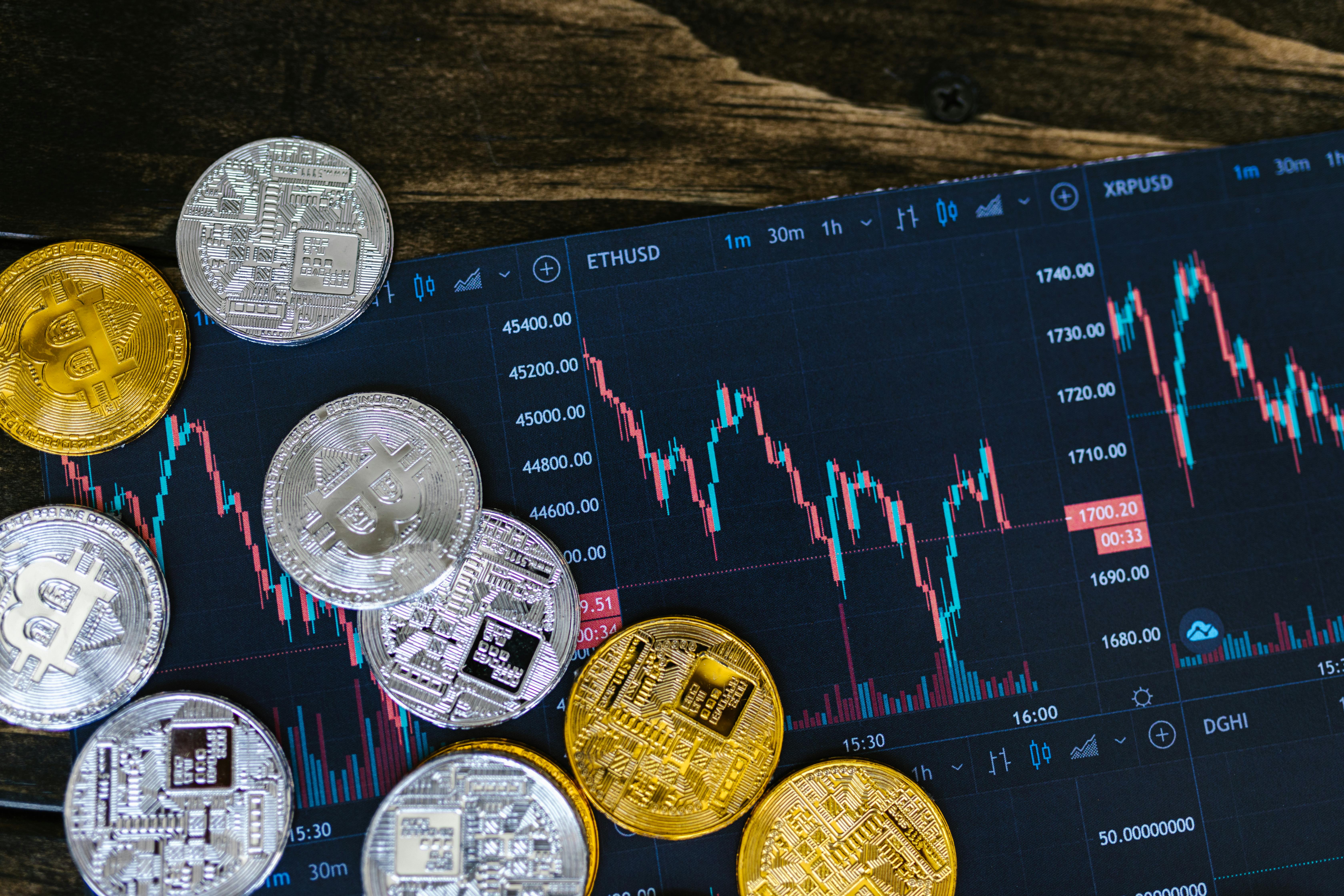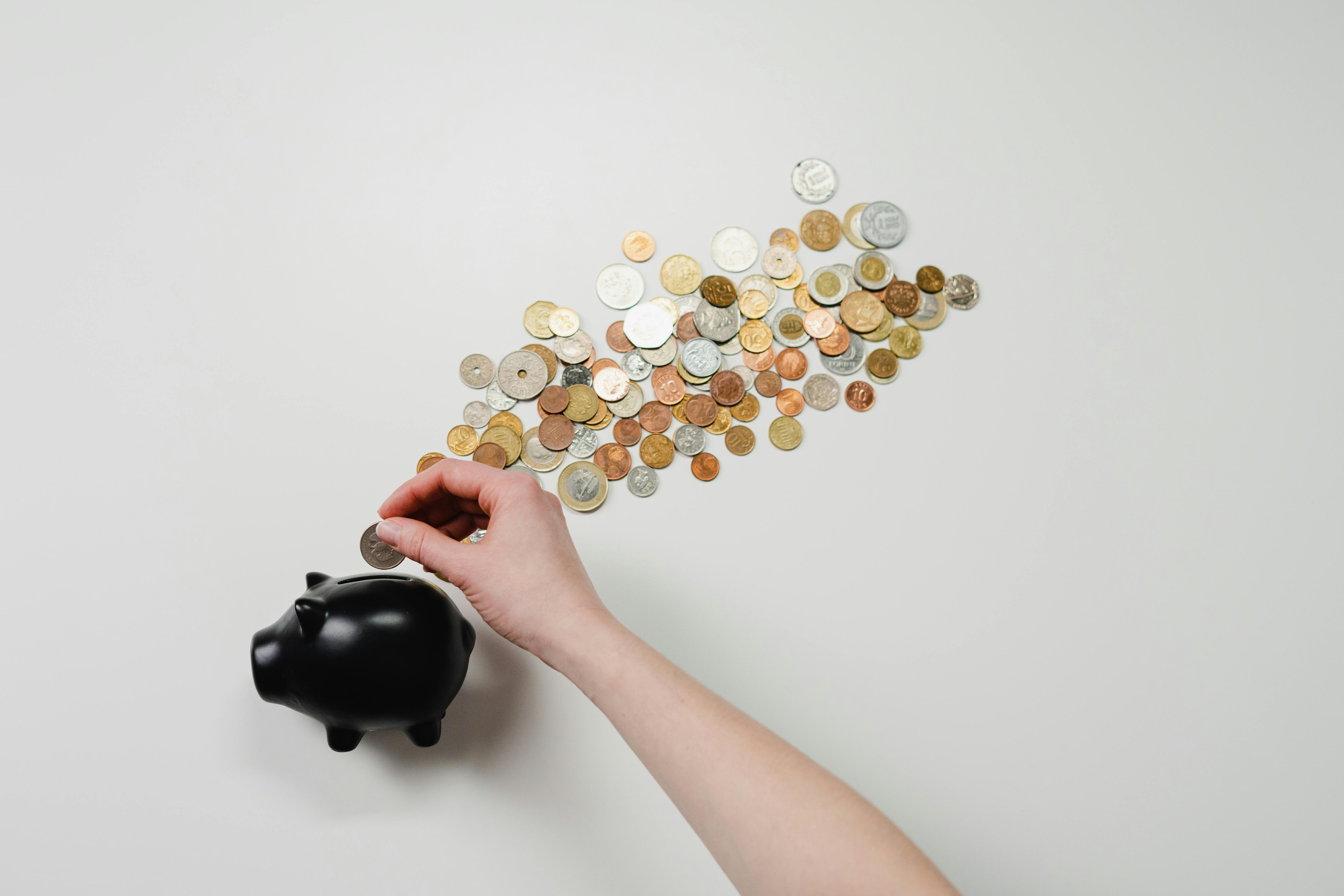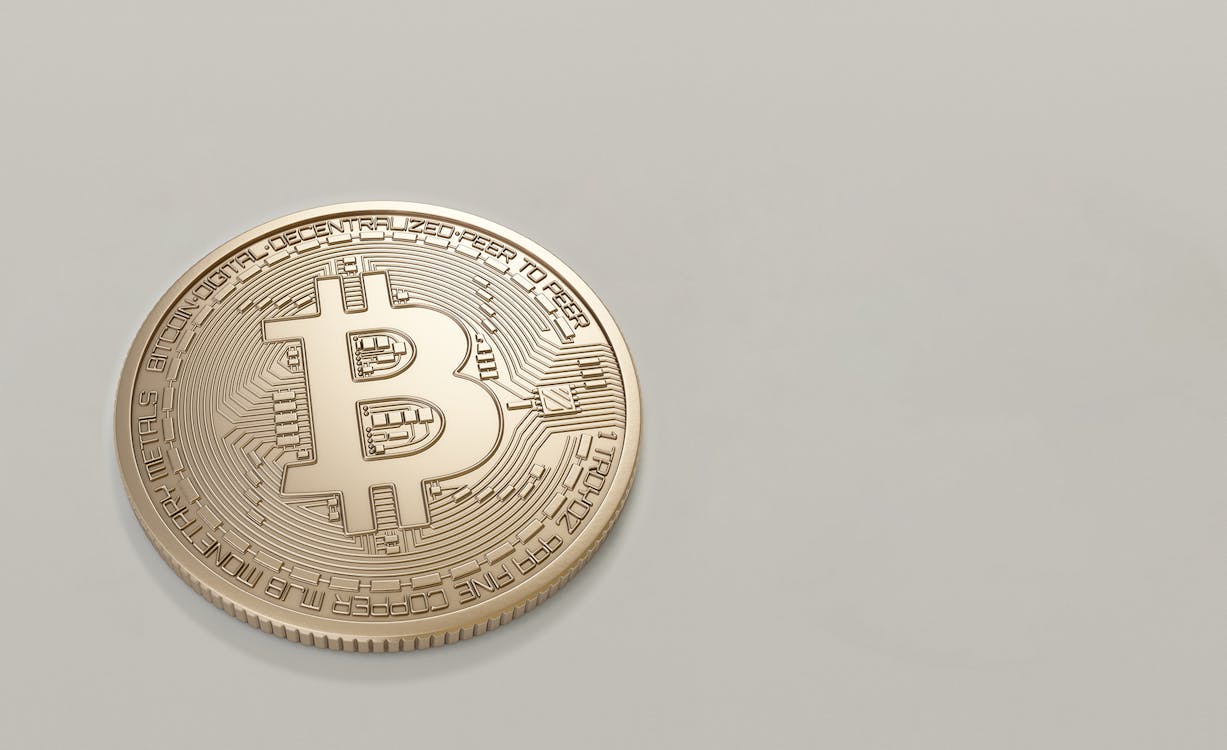Have you ever heard of the term cryptocurrency in the Philippines?
Who are we kidding? Of course, you have.
Cryptocurrency has been surging in popularity these last few years, even here in the Philippines. If you haven’t heard about it on the news, then you’ve surely come across “success stories” of people brought to sudden riches by this powerful new thing.
But what exactly is cryptocurrency? How does it work? Can you even use it here in the Philippines?
Although it’s a relatively new concept, cryptocurrency is proving to be a potentially lucrative asset: perfect for the technologically-oriented adulting Pinoys.
Interested in dipping your toes in a brand new venture? In today’s Adulting Pinoy article, we present to you the ultimate guide to cryptocurrency in the Philippines.

Cryptocurrency Explained
Cryptocurrency refers to a form of currency that you can only access and use in the virtual and digital sphere using the internet.
Unlike traditional currencies, the monetary value of cryptocurrencies does not rely on government policies and the global financial market.
Instead, the value of cryptocurrency is decided by consumer demand. That’s why its value can fluctuate several times per day, making it quite volatile.
For beginners, the concept of cryptocurrency may seem intimidating or complicated to deal with. But don’t worry! We’ll explain the basics that will allow you to jumpstart your journey into the crypto world.
Although venturing into the crypto market can be a challenge, it can definitely be a worthwhile investment for your future.
Cryptocurrency vs Traditional Currencies
You can convert ‘fiat’ currency (our ‘real-life currencies’) into cryptocurrency – and vice versa. This way, you can use both for both online and offline transactions, as long as you convert them first.
The Blockchain Technology
In explaining precisely what cryptocurrency is, it’s best to start on the technology that fuels it all: the blockchain.
As cryptocurrency operates beyond the restrictions of traditional banks and government structures, it needs a different tactic to organize its transactions. This technology is called the blockchain.
A blockchain is a ‘decentralized’ digital record, which means that no one individual or entity ‘owns’ the blockchain. Instead, it’s owned and operated by every user of the crypto housed in that blockchain.
This is one of the most distinguishing aspects of the crypto sphere: all the crypto traders and investors collectively verify transactions and then add those transactions to the blockchain. This means that the transactions recorded in the blockchain cannot be changed, and because everyone owns and operates the blockchain simultaneously, it’s also impossible to hack.
Thus, no one owns the blockchain, yet the entirety of the crypto community works hand-in-hand to maintain the trustworthiness of the market.
As its name suggests, the blockchain is made up of chronologically ordered blocks of information. These blocks hold all the necessary information involved in crypto transactions.
To many, this decentralized financial structure is beneficial to avoid cases like fraud. On the other hand, some would still argue that the lack of a centralized controlling institution is the crypto market’s biggest weakness.
Is Cryptocurrency Safe?
Many who are hesitant to enter the crypto market fear the volatility of cryptocurrencies. The reality, however, is that with high returns comes high risk.
Market Risk
Every investment has a risk, although one form of investment may prove to be a lot safer. Due to the enormous fluctuations cryptocurrencies experience within a year, crypto is considered a high-risk investment. To avoid losses, you need to know the ins and outs of the marketplace.

To minimize your risk, one of the things you can do before investing is background checks on the currency you’re investing in.
Research the currency’s creators, endorsements of popular and trustworthy brands, screening process, and if the coin is traded on safe exchanges. Most importantly, be a responsible investor and don’t invest all of the money you have in the bank. Only invest an amount that you are willing to lose.
Cyber-security risk
But cryptocurrency is also in the hotspot for its potential vulnerability towards cyber-attacks.

It is undeniable that the rising popularity of cryptocurrency makes it a ripe fruit for hackers and fraudster to target. However, a simple solution is to use an offline wallet, commonly known as a cold-storage device.
Users widely use paper wallets and hardware wallets. To avoid hacking, it is ideal that cryptocurrencies remain disconnected from the internet unless used for trading.
Disconnecting your cryptocurrencies lessens the risks for your private information and assets to be accessible to thieves. It is highly recommended that you avoid storing all your assets on public exchanges or wallets.
Important Cryptocurrency Terms
Cryptocurrency is a big topic, and it’s easy to get lost with all the jargon and tech-sounding terminologies.
If you are only beginning to learn about cryptocurrency, then you’ve got to familiarize yourself with the following terms:
- Address – The address is like a path taken by a cryptocurrency to reach a user’s wallet. It serves as a unique identification of cryptocurrency. The address is one of the two critical elements needed for every crypto transaction, the other being the wallet.
- Altcoins – Altcoins, or Alternative Coins, refer to the thousands of cryptocurrencies that serve as successors to Bitcoin. The use of altcoin signifies Bitcoin’s dominance in the cryptomarket and as these altcoins only serve as an “alternative” to it.
- Bitcoin – The term bitcoin refers to two things. Spelled with no capitalization, “bitcoin” refers to the currency itself. On the other hand, “Bitcoin”, spelled with a capitalised “B”, refers to the bitcoin blockchain, or the technology used to make the bitcoin currency function.
- Blockchain – The blockchain runs the entire cryptomarket. It is a system used for securing, record-keeping, and validating cryptocurrency transactions. It is not run by a single organization but is operated by all users – making blockchain one of the most trustworthy financial technologies.
- Crypto Mining – Crypto mining refers to the verification process of transactions before adding these new ‘blocks’ of information into the blockchain. In the blockchain, it is the crypto users who confirm the authenticity of these blocks. Crypto users who verify such transactions are called miners, and they are rewarded with additional crypto in exchange for their services.
- Crypto Wallet – Your public and private keys are stored in the crypto wallet. Your wallet can be a physical medium (called a cold storage or paper wallet). It can also be a hardware wallet or a physical device. Most crypto users use software wallets. Other forms of digital wallets include a deterministic wallet and multi-signature (multi-sig) wallets.
- DeFi – DeFi or ‘Decentralized Finance’ refers to the decentralized nature of cryptocurrency transactions instead of the centralized structure of traditional financial institutions. In DeFi, software, instead of physical banks, act as intermediaries between transactors.
- Key – To access your wallet, you need addresses called keys. A public key is used to verify and receive transactions that the private key has signed. However, the more important key to safeguard is the private key because it serves as your sole access to your crypto assets and your digital signature.
- Ledger – All the transactions validated by the blockchain are made publicly available through the ledger. A ledger records all financial transactions in the crypto market.
- NFT – Non-Fungible Tokens or NFTs are intangible assets that prove ownership for digital and real-world assets such as music, art, and other crypto collectibles. It functions like a blockchain-backed certificate of ownership.
- Recovery Seed – In emergencies, the recovery speed validates the user’s ownership of the wallet by providing 12 to 16 security questions.
- Tokens – The coin or currency of cryptocurrency is called a token. To facilitate transactions, tokens act as denominations of a cryptocurrency owned, bought, and sold.
Uses of Cryptocurrency
To many traditional investors, cryptocurrency may seem too modern and complex.
However, cryptocurrency is novel and ingenious, and thus its value in the market is steadily growing. There are many practical applications for cryptocurrency too.
In this section, we’ll be talking about some things that will surely excite the finance geek in you.
100% Secure Purchases and Transactions

Due to the decentralized and secure features of cryptocurrency, you can make large, hassle-free transactions. Currencies such as PIVX (PIVX), Monero (XMR), and Zcash (ZEC) allow you to virtually transact huge amounts without going through the numerous hoops and limitations you would experience in traditional banking.
In addition to the heightened privacy and security in cryptocurrency transactions, buying and selling assets can be done for a lower price and faster than traditional methods. You can even purchase super-expensive luxury items abroad in just a few clicks.
Decentralized Investing
If you are more into investments rather than luxurious purchases, then decentralized investing may be of interest to you. To understand decentralized investing, however, we must first discuss passive investing.

Passive investing or yield farming is another famous use for cryptocurrency. Through passive investments, you can earn money by simply letting your assets sit in your wallet. As the long-term trend of the crypto market reflects an upward growth, you can expect growing interest rates if you are patient enough to sit it out.
In connection, decentralized investing is similar to traditional passive investments of bonds and stocks in the real-world market.
However, what sets it apart is the free-pass from the restrictions and lengthy process you would have to deal with in physical banks and centralized financial institutions. The cherry on top for decentralized investing is the high annual rates which could reach up to 10%, depending on the season and platform.
However, it is vital to remember that investing in crypto markets incurs the same risks as traditional markets – if not more – in trading, investing, and lending transactions.
As transactions in the crypto market are not government-backed, you will not have the same insurance the government provides for traditional transactions.
Supporting a Real-World Project
One exciting aspect of cryptocurrencies in the market today is the real-world ‘project’ at its heart, with its creators using the investments to their cryptocurrencies as funding their projects, which will increase the value of said crypto.

The ICOs or ‘initial coin offerings often dictate the funding of the project. Through a successful coin value and more investors, the project reaches greater funding and support.
A few examples of these cryptocurrencies linked to projects that aim to leave a positive impact are the Brave Browser (BAT) and Monero (XMR).
Brave Browser’s (BAT) interests revolve around improving consumer-centrism and privacy-consciousness to the browsing experience. Monero (XMR) works towards improving security, non-traceability, and privacy tools in other cryptocurrencies.
Tamper-Proof Alternative Wealth Storage
One of the many troubles in traditional banks is that your assets can be censored and frozen more often than not. Any financial activity that could be flagged as suspicious can freeze your assets.

And while law-abiding citizens shouldn’t have to worry about this, hackers and fraudsters can get access to your traditional account and use that for transactions.
While asset freezing is a necessary privacy and security measure, this poses a problem for false alarm cases. As government transactions take longer to process, traditional investors know the difficulty of retrieving or unfreezing their assets.
An advantage of decentralized finance and cryptocurrencies is the independence and freedom from such processes. With other security measures, your coins will remain safe and will need not be frozen. An offline wallet is usually enough to keep your assets safe while saving you the hassle of external censorship.
Will Cryptocurrency Work in the Philippines?
The concept of cryptocurrency has only recently gained traction in the Philippines. Despite that, the Philippines is among one of the first countries to have its central bank allow the registration of companies with cryptocurrency-related services.
This started in 2017, around the time Japan’s Financial Services Agency (FSA) entertained the registration of crypto exchanges in their state.
In the Philippines, the Rules on Digital Asset Exchange were published by the Securities and Exchange Commission (SEC) to manage digital asset exchanges located in and accessible from the Philippines. The document includes registration requirements, capitalization maintenance requirements, anti-money laundering measures, and the scope and responsibilities of digital asset exchanges.
To promote financial integrity, the SEC document also includes the condition of maintaining an “unimpaired paid-up capital of one hundred million pesos Php 100,000,000.00 at all times” for digital asset exchanges.
Best Cryptocurrency Investing Platforms in the Philippines
Beginning to learn about cryptocurrency can be a taxing activity itself.
Even more when you realize that there are thousands of altcoins and platforms to choose from, to help you with this, we’ve handpicked three of the best cryptocurrency platforms in the Philippines for your safe investing.
Binance
In the Philippines, Binance is regarded as the best crypto wallet and exchange. Aside from its popularity regarding trading volume, it is also frequently used for NFT games transactions.
Features
Filipinos can now use the Philippine Peso to trade USDT, BTC, BUSD, ETH, BNB, and EOS currencies without any transaction fees.
This is made possible by its P2P (peer-to-peer) trading feature, which allows flexibility in prices and modes of payment. The transfer of crypto assets to a Binance wallet is free, while it also boasts the cheapest crypto exchange fees.
Pros
Binance continuously innovates to maintain its reputation among its consumers as one of the most secure crypto trading platforms. It also processes millions of transactions per second. The minimal to zero fees and improved liquidity are prime advantages as well.
Cons
Due to the complexity of its contents and interface, novices may find Binance to be too confusing and hard to use.
Coins.ph
Coins.ph is a fintech company that caters to customers who don’t have bank accounts. It is among the first blockchain-backed platform to gain popularity.
Features
Coins.ph functions like a mobile banking service that offers digital payment services. These include contactless online shopping, global and national remittances, and other transactions.
Pros
Having a platform like Coins.ph will save you from the hassle of commuting and lining up for transactions.
As it is also free and friendly to unbanked clients, it is generally more accessible. It is also made more convenient through cashless mobile app-based transactions. Your funds are not only accessible to you throughout the day, but you are also allowed to get large remittances which could be handy in emergencies.
Cons
However, you have to consider a few disadvantages: the possibility of getting scammed, the irreversibility of transactions, and the risk associated with using a public wallet. It would be best if you didn’t keep a large sum of money in your Coins.ph account.
eToro
EToro is a mobile trading platform that suits crypto connoisseurs to expand their knowledge and skills as traders.
Features
It is a versatile trading platform as it contains 15 currencies and has a virtual trading account with a user-friendly interface that promotes social interactions. Depending on the currency being traded, you must expect 0.75% to 5% fees in its cryptocurrency prices.
Pros
Its social features allow an engaging environment for experts and novices to interact and learn from each other. As it is a mobile platform, one could quickly learn the features of the platform. Furthermore, you can trade any of the 15 currencies it supports without additional payments.
Cons
While 15 cryptocurrencies seem a lot, it can still seem to be limiting to veteran traders. Furthermore, selling cryptocurrencies will incur you an expensive 5% fee.
Investing in Cryptocurrency in the Philippines
Cryptocurrency is one of the newest buzzwords in town, and understanding it is key to understanding other exciting forms of investments such as NFT and NFT games (Axie Infinity, anyone?).

With this article, you now have a guide on the basic concepts of the crypto world. Whether you decide to invest in this new and exciting technology is up to you, but remember that there’s no ‘magic investment’ that will make you rich overnight. Just like any other responsible investment, you still have to learn the market to succeed.






